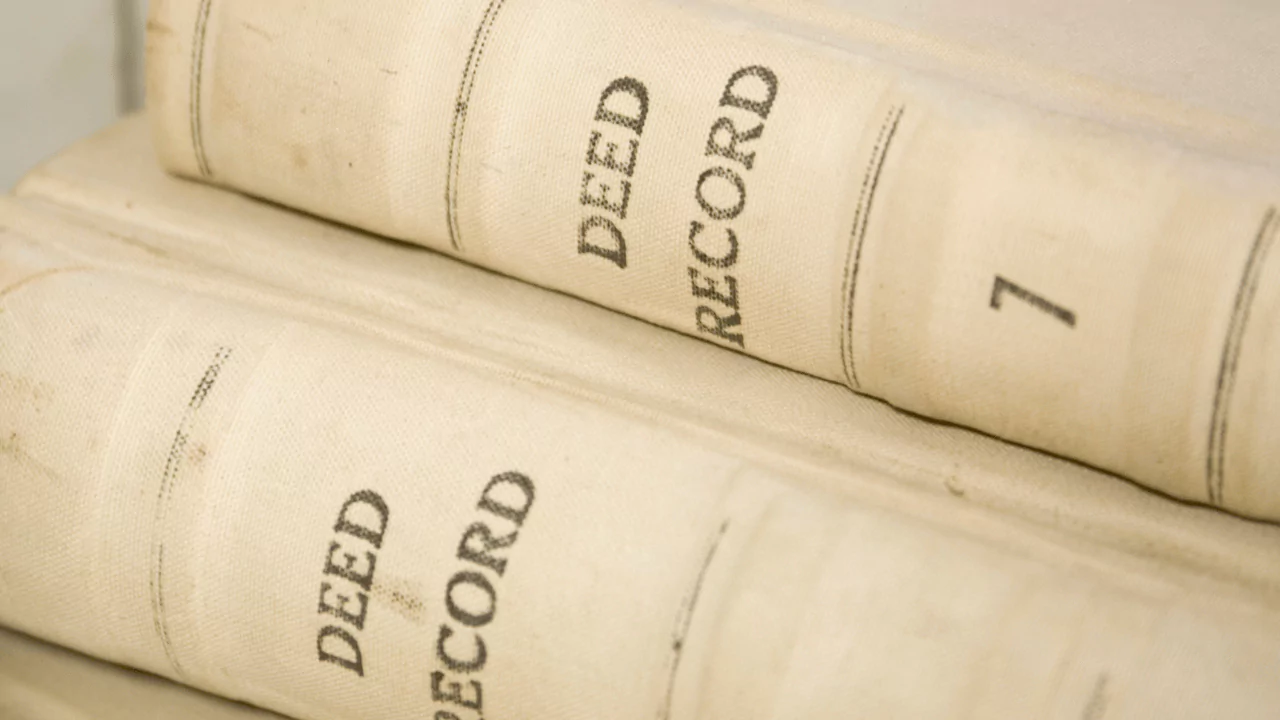Florida recognizes various types of deeds that serve different purposes in real estate transactions. The type of deed determines the rights, protections, and obligations transferred from the property seller to the buyer.
When buying or selling real estate in Florida, it is important to understand the implications of each deed type to ensure it meets your needs.
This article discusses the 6 main types of deeds used in Florida real estate transactions.
Understanding the Different Types of Deeds in Florida
Quit Claim Deed
A quitclaim deed transfers the seller’s interest in a property without providing any warranty or guarantee of title. The seller passes on only the rights they currently have in the property, if any. No warranties are made about the validity of the title or whether there are any unknown liens or encumbrances on the property. This type of deed provides the buyer minimal protection.
Quitclaim deeds are often used for transfers between family members, gifts, placing personal property into a trust, or other special circumstances. They are also used to clear up doubts about the title or to relinquish claims to property.
Special Warranty Deed
With a special warranty deed, the seller warrants they have done nothing that would encumber or affect the title but does not warrant against title defects arising from previous owners. This deed offers more protections than a quitclaim but less than a general warranty deed.
If there is a title defect from a previous owner, the current seller is not responsible. However, if there is a defect or encumbrance resulting from something the seller did, they would be liable. Special warranty deeds provide moderate protection for buyers.
General Warranty Deed (Statutory Warranty Deed)
This is the most commonly used and broadly protective type of deed in Florida. It provides a full warranty of title conveying that the property is owned free and clear by the seller.
The seller warrants the property title is clear of any liens, encumbrances, or defects. They also warrant that they have full rights and authority to convey the property. If any defect arises or adverse claims against the title exist, the seller would be financially responsible. This deed offers the highest degree of protection to buyers.
Corrective Personal Representative Deed
Also called a personal representative’s deed, this document is used to correct an error in a deed involving an estate. If the personal representative for the estate made a mistake in the deed conveying property to heirs, this deed can be used to correct it.
For instance, if a parcel of land was improperly described in the original deed, this corrective deed fixes the error. The personal representative signs the new deed to allow changing the defective portions of the original deed while leaving the valid portions intact.
Fee Simple Deed
This deed conveys full ownership rights from the seller to the buyer without any limitations. The buyer gains full control and use of the property indefinitely. Ownership can be passed onto heirs. Fee simple is the highest form of ownership recognized in Florida real estate law. This deed type places no restrictions on ownership rights being transferred.
Bargain and Sale Deed
A bargain and sale deed conveys property ownership from seller to buyer but without providing any title warranties. It certifies that the seller has received payment from the buyer and conveys all ownership rights. However, no warranties or guarantees about the validity of the title are made.
Bargain and sale deeds are similar to quitclaim deeds, but quitclaims provide even less protection. Bargain and sale deeds state the seller has the right to sell the property but doesn’t warrant good title. This type of deed offers minimal protection for buyers.
Purpose and Implications of Each Type of Deed
The various deed types serve different purposes and provide progressively greater levels of protection and warranty to the buyer. Quitclaim deeds offer almost no assurances about the title but are useful for special circumstances like transfers between relatives. Special warranty deeds provide limited protections, while general warranty deeds give the broadest level of protection against any title defects.
Corrective deeds allow fixing mistakes in deeds involving estates, and fee simple conveys full ownership rights. Bargain and sale deeds and quitclaim deeds offer minimal buyer protections but allow conveying the seller’s limited interest only. Understanding the implications empowers buyers and sellers to select the right deed type for their needs.
How to Choose the Right Deed for Your Real Estate Transactions?
Choosing the right deed depends primarily on the level of title protection the buyer desires, and whether the seller is willing and able to provide through warranties. Here are some guidelines for selecting the appropriate deed:
Consider the Level of Protection and Warranties Provided
Evaluate whether you want to offer or receive the broadest warranties, limited protections, or no assurances. Buyers generally want the greatest protection. Sellers prefer to limit warranties.
Understand the Specific Requirements and Implications of Each Deed
Research each deed type to fully understand the rights and obligations it confers. Consider any special circumstances of the property transfer that may require a specific instrument.
Seek Legal Advice if Needed
Real estate transactions can involve complex legal requirements. It’s wise to consult an attorney to ensure the deed correctly meets the needs of buyers and sellers. Lawyers can advise on the most suitable deeds and help craft the appropriate language.
Selecting the proper deed lays a solid foundation for the real estate transaction. Buyers should secure the highest protections needed, balanced with seller warranties. Seeking legal counsel helps ensure the deed is compliant, enforceable, and matches the intentions of both parties. With an optimal deed, all sides can be confident in the sale knowing their rights and interests are secured.





